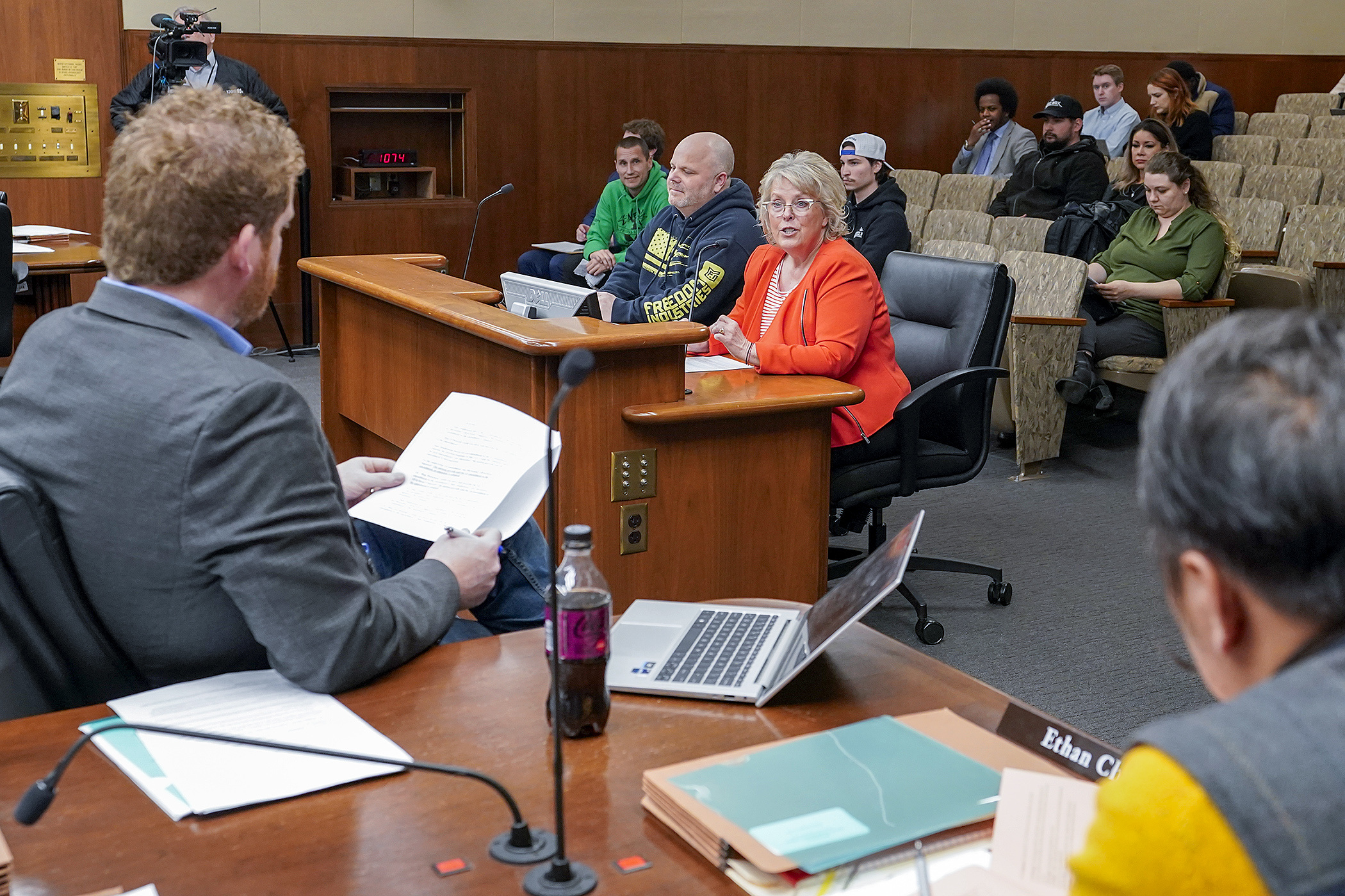Commerce panel advances cannabis policy bill, tweaking landmark 2023 legislation

Crafting sweeping legislation is not always perfect on the first try.
Rather, it often takes more than one go-around to get things right, that is, to close loopholes and fix unintended consequences.
A case in point is HF4757, the cannabis policy bill, approved by the House Commerce Finance and Policy Committee on Wednesday. The 91-page proposal would make more than three-dozen statutory changes to last session’s sweeping legislation legalizing recreational cannabis for adults.
The 2023 legislation appropriated nearly $80 million in the 2024-25 biennium to establish statewide and local structures to regulate and manage cannabis sales, fund prevention and addiction recovery programs, and provide grants to law enforcement and courts.
“We’ve learned things over the last year. Different ideas have come forward. Change is appropriate in light of that,” said Rep. Zack Stephenson (DFL-Coon Rapids), the committee chair and bill sponsor.
“We’ll keep working on it. We’ll try and get it right.”
The bill, as replaced by a delete-all amendment, was approved on a split-voice vote and sent to the House State and Local Government Finance and Policy Committee.
Office of Cannabis Management recommendations
Much of the bill originated from Office of Cannabis Management recommendations on fine-tuning the legal and inter-governmental relationships among medicinal cannabis (legalized in 2014), hemp-derived THC edibles and other products (legalized in 2022), adult recreational cannabis (legalized in 2023) and the different regulatory structures governing each substance.
Stephenson noted one important recommendation that did not make it into the bill. The office recommended eliminating medical cannabis as a separately cultivated product, and only make a distinction “at the point of sale.”
Instead, Stephenson said the bill would maintain the current dual-track cultivation and production of the two products.
The bill would adopt the office’s proposal to establish a retail license preapproval process that would issue licenses to potential retailers without first requiring they obtain a physical space to conduct business.
This would speed up the path for retail operations to begin in the state, said Charlene Briner, interim director of the cannabis management office.
 A marijuana legalization advocate outside the Capitol in 2021. (House Photography file photo)
A marijuana legalization advocate outside the Capitol in 2021. (House Photography file photo)If there are too many applicants for retail licenses allotted to an area, Briner said there would be a “vetted lottery system” that would randomly award these preapproved licenses.
Several testifiers said that despite controls the office would try to impose on such a lottery, existing large out-of-state retailers could game the system and flood the office with dubious retail applications to gain a numerical advantage.
Because the proposed lottery would replace the merit-based system instituted in the 2023 legislation, it would hurt social equity applicants, according to representatives from the Latino Chamber of Commerce Minnesota and other groups that submitted written comments.
Other provisions
The bill would also make changes to the recreational cannabis law passed last year that allows up to eight cannabis plants in a single residence without a license.
Medical cannabis patients would be permitted to possess 16 plants, and transfer half of their allotment to a registered designated caregiver approved to assist patients enrolled in the medical cannabis program.
The idea is to help people with debilitating diseases who are enrolled in the state’s program to grow their own plants and obtain their medicinal cannabis at perhaps a lower cost than prescribed cannabis.
Other notable provisions in the bill would:
- allow THC beverages to be sold on tap under the current “registration” provision for edible cannabinoid products;
- make changes in testing procedures to measure THC levels in employees;
- establish a new approval process for cannabinoids to be designated as “nonintoxicating”;
- remove employee background checks as a duty of the Office of Cannabis Management;
- prohibit the sale of lower-potency hemp edibles to an obviously intoxicated person;
- permit products having only hemp-derived cannabinoids to be sent out of state for testing;
- prohibit selling empty cannabis packaging that looks like an existing brand, and give the attorney general power to enforce the ban; and
- specify how the medical cannabis program would be transferred to the Office of Cannabis Management, including giving the office authority to access data to facilitate that transfer.
Amendments
Stephenson successfully offered an amendment that would allow veterans receiving care from the Department of Veterans Affairs to be automatically eligible to enroll in the state’s medical cannabis program. The same amendment would also make medicinal cannabis available for any medical condition approved by a patient’s licensed health care practitioner.
An amendment successfully offered by Rep. Tim O'Driscoll (R-Sartell) would add to the list of prohibited items in advertisements for cannabis products to include those containing an image of alcohol or a person or persons consuming alcohol.
An amendment successfully offered by Rep. Bernie Perryman (R-St. Augusta) would add “an expert in clinical pharmacy appointed by the governor” to the membership of the Cannabis Advisory Council.
Rep. Isaac Schultz (R-Elmdale Township) unsuccessfully offered an amendment to prohibit an “alien not lawfully present in the United States” from obtaining a retail cannabis business or be employed in a retail cannabis business.
***
What’s in the bill?
The following are selected bills that have been incorporated in part or in whole into the cannabis policy bill:
Related Articles
Search Session Daily
Advanced Search OptionsPriority Dailies
Ways and Means Committee OKs proposed $512 million supplemental budget on party-line vote
By Mike Cook Meeting more needs or fiscal irresponsibility is one way to sum up the differences among the two parties on a supplemental spending package a year after a $72 billion state budg...
Meeting more needs or fiscal irresponsibility is one way to sum up the differences among the two parties on a supplemental spending package a year after a $72 billion state budg...
Minnesota’s projected budget surplus balloons to $3.7 billion, but fiscal pressure still looms
By Rob Hubbard Just as Minnesota has experienced a warmer winter than usual, so has the state’s budget outlook warmed over the past few months.
On Thursday, Minnesota Management and Budget...
Just as Minnesota has experienced a warmer winter than usual, so has the state’s budget outlook warmed over the past few months.
On Thursday, Minnesota Management and Budget...